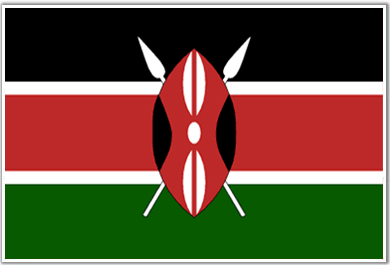Peace talks with Congolese rebels continue in Nairobi
 Nairobi - UN-brokered peace talks between Congolese rebels and government officials continued in the Kenyan capital Nairobi Tuesday as the Red Cross prepared to help tens of thousands displaced by conflict in the east of the Democratic Republic of Congo.
Nairobi - UN-brokered peace talks between Congolese rebels and government officials continued in the Kenyan capital Nairobi Tuesday as the Red Cross prepared to help tens of thousands displaced by conflict in the east of the Democratic Republic of Congo.
Tutsi rebel group the National Congress for the Defence of the People (CNDP) and DR Congo officials arrived in Nairobi Monday for the first direct talks aimed at resolving the conflict.
The government had until now refused to meet Laurent Nkunda's CNDP. However, UN peace envoy and former Nigerian president Olusegun Obasanjo recently met both parties and persuaded them to sit down at the table.
Neither Nkunda nor Congolese President Joseph Kabila is attending the talks, which are expected to last until Wednesday.
Nonetheless, Obasanjo is hopeful that the dialogue will help bring peace.
"This opportunity should neither be lost nor wasted," he said as the meeting opened Monday. "Our aim is to find consensus on the way forward."
Well over 250,000 civilians have been displaced in the east of the DR Congo since August as a result of renewed clashes, aid agencies say.
The International Federation of Red Cross and Red Crescent Societies (IFRC) has launched an appeal for 1.5 million dollars to help up to 60,000 Congolese refugees in Uganda, Rwanda and Burundi.
The World Food Programme and other agencies have been delivering supplies to the internally displaced in DR Congo, but the security situation has often hampered relief efforts.
Nkunda called a ceasefire and pulled his troops back from the front lines in mid-November after meeting Obasanjo, but clashes have continued with government forces and pro-government Mai Mai militia.
Civilians have continued to flee the ongoing clashes.
Nkunda says he is fighting to protect Tutsis from Hutu militia who fled to the DR Congo after Tutsi forces seized power in Rwanda.
The armed Hutu groups were implicated in the 1994 massacres in Rwanda, when 800,000 Tutsis and moderate Hutus were killed.
The UN peacekeeping force in DR Congo is to have its numbers boosted by 3,000 to 20,000 in total, but most observers feel this will not be enough to keep the conflict under control.
UN Secretary General Ban-Ki Moon had asked the European Union to send a bridging force to DR Congo until the UN troops could deploy, but foreign ministers failed Monday to agree on sending in peacekeepers.
French Foreign Minister Bernard Kouchner, who visited the DR Congo shortly after the fighting broke out, criticised other member states for not committing forces.
"I share your indignation," he said in response to question on why the EU was not doing more to help. ""Unfortunately, this indignation is not shared by all 27 (EU) member states." (dpa)